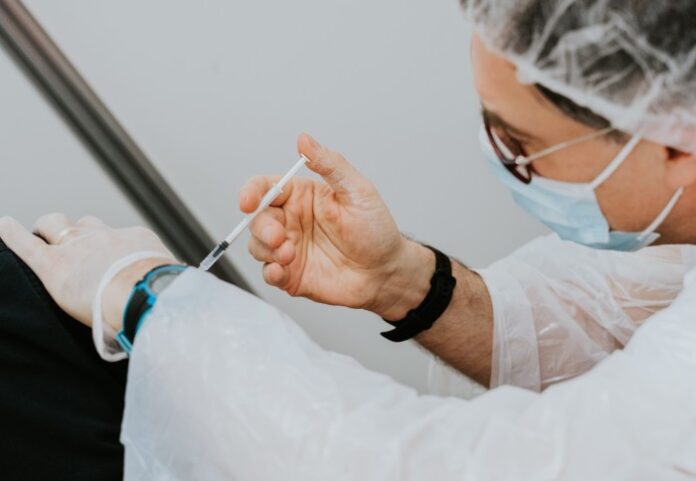New research has found that double vaccinated people were three times less likely than unvaccinated people to test positive for the coronavirus.
These results from the Imperia College-led REACT-1 study, a major coronavirus monitoring programme, are based on swab tests taken by almost 100,000 people in England between 24 June and 12 July.
During this period, 0.63% of people were infected, or 1 in 158. This represents a 4-fold rise compared with the study’s previous report, when 0.15% or 1 in 670 had the virus as of 7 June.
The number of infections was similar to early October 2020 and late January 2021, doubling every 25 days with an R number of 1.19. The R number was lower than the previous round (1.44) and the study’s interim report published on 8 July (1.87), which looked at the first 47,000 swabs taken for this round of testing. This suggests that the rate of growth slowed at the end of the study period.
The study’s analyses of PCR test results also suggest that fully vaccinated people may be less likely than unvaccinated people to pass the virus on to others, due to having a smaller viral load on average and therefore likely shedding less virus.
Professor Paul Elliott, director of the REACT programme from Imperial’s School of Public Health, said: “These findings confirm our previous data showing that both doses of a vaccine offer good protection against getting infected. However we can also see that there is still a risk of infection, as no vaccine is 100% effective, and we know that some double vaccinated people can still become ill from the virus.
“So even with the easing of restrictions, we should still act with caution to help protect one another and curb the rate of infections.”
Professor Steven Riley, Professor of Infectious Disease Dynamics at Imperial, said: “The Delta variant is known to be highly infectious, and as a result we can see from our data and others’ that breakthrough infections are happening in fully vaccinated people. We need to better understand how infectious fully vaccinated people who become infected are, as this will help to better predict the situation in the coming months, and our findings are contributing to a more comprehensive picture of this.”







